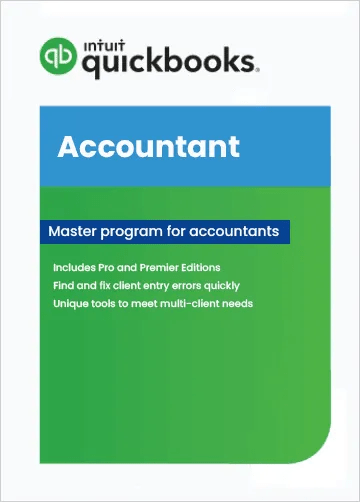
- About
- QuickBooks Resources
POPULAR GUIDES
POPULAR QUICKBOOKS TOOLS
POPULAR ARTICLES
FEATURE ARTICLE

- Products & Services
- Blog
- Contact
QUICKBOOKS ACCOUNTANT
Start at $48.00 / Mon.

QuickBooks Accountant was created to transform and streamline your accounting operation completely. It equips accountants to deliver excellent services and help clients achieve financial success with strong tools, improved functionality, and a user-friendly design. Discover how QuickBooks Accountants can take your business to new heights and join the ranks of industry leaders.
Accounting records for you can be set up and maintained in QuickBooks, ensuring that financial transactions like earnings, spending, and bank reconciliations are appropriately recorded.
We create and file tax returns for individuals, companies, and organizations thanks to our proficiency with QuickBooks. Additionally, we offer strategic tax planning and counseling services to reduce your tax obligations.
We offer insightful analysis and suggestions for enhancing your financial success by using financial data. This involves tasks like forecasting and budgeting to help you make financial plans for the future.
Many firms consider payroll management to be a crucial task. You may assist with setting up and managing payroll processing with QuickBooks Payroll, ensuring compliance with payroll tax rules and regulations.
We design and manage inventory tracking solutions within QuickBooks that help you optimize inventory levels and lower carrying costs.
We effectively manage accounts payable by keeping track of and paying invoices on time and controlling accounts receivable to guarantee prompt client payment collection.
We create personalized financial reports that are designed to give you information about your financial well-being. Additionally, you may analyze these reports and provide advice on how to boost profitability.
We assist in configuring QuickBooks accounts that suit your specific requirements. Additionally, training clients and your staff on how to effectively use QuickBooks can empower them to analyze their finances more efficiently.
We provide strategic guidance on corporate growth, expansion, and financial decision-making in addition to performing basic financial responsibilities. This includes assisting clients in locating and seizing profitable opportunities.
We arrange and prepare financial records for audits while supporting the audit procedure. This guarantees adherence to auditing guidelines and rules.
If you are considering transitioning to cloud-based accounting with QuickBooks Online, we specialize in this area, assisting with the migration and providing ongoing support and troubleshooting.
We aid in migrating data from other accounting software to QuickBooks and launch the task of cleaning up and managing existing financial data within QuickBooks.
Recognizing that each client is unique, we adapt and tailor our services to meet your specific financial needs and objectives.
By integrating QuickBooks with other software programs, we simplify business processes and guarantee smooth data exchange between different business tools.
Staying up-to-date with the latest versions of QuickBooks, we advise you to upgrade your software to access improved features and enhanced security.
Our clients are our top priority. We work closely with you to comprehend your business goals and provide solutions that align with your objectives.
We customize our services to meet the unique needs of your business. Whether you're a startup or a large enterprise, we provide solutions that fit your business requirements.
We have extensive expertise and experience in QuickBooks. We stay updated with the latest industry trends and regulations to provide accurate and compliant services.
Our dedicated support team is here to address your queries and concerns promptly. We provide ongoing support to ensure smooth business operations.